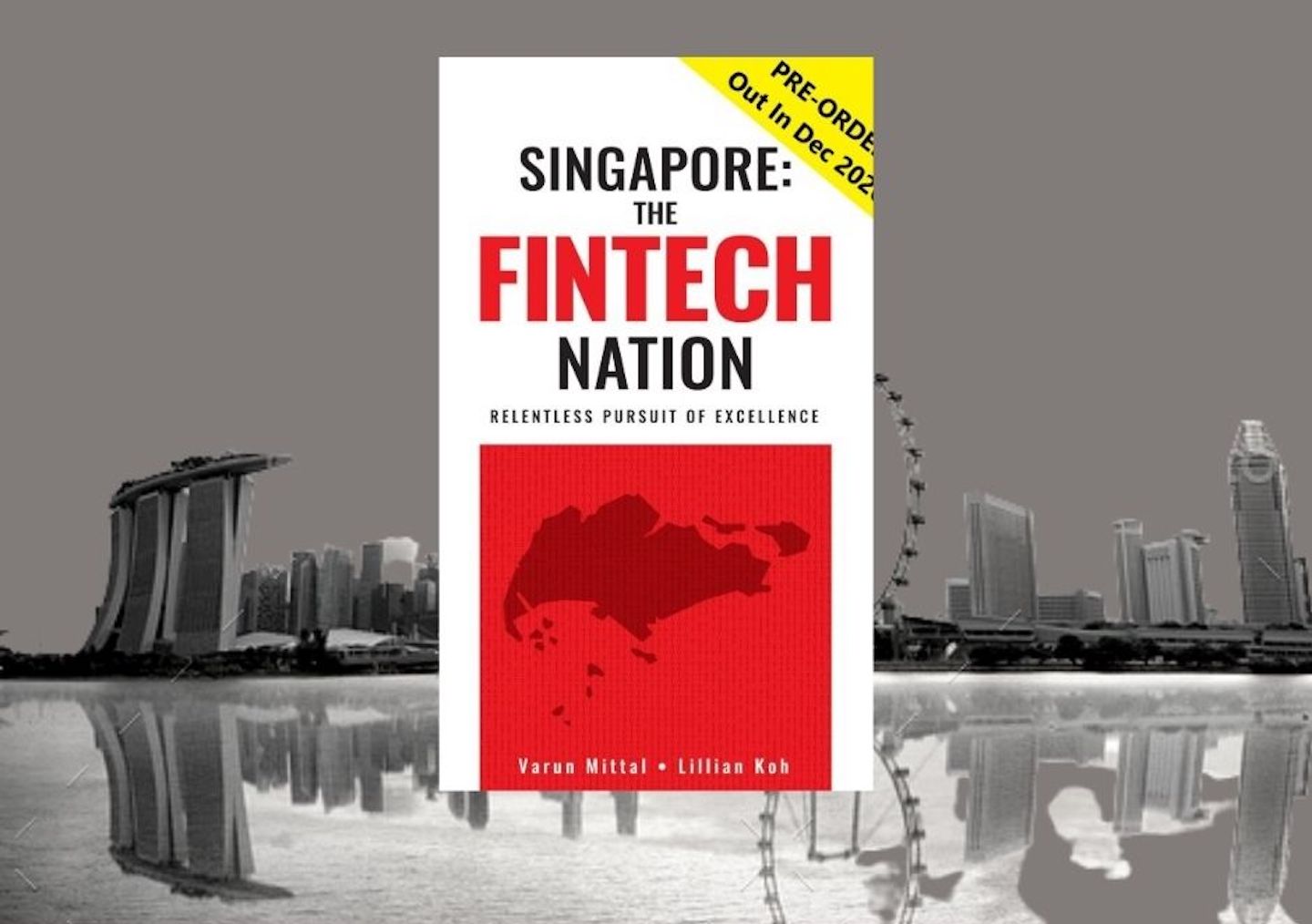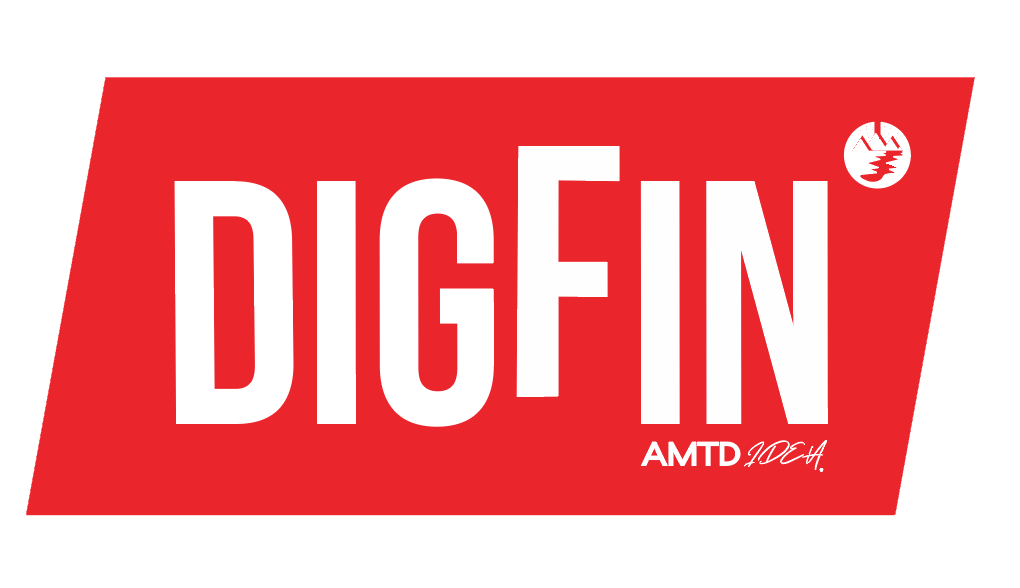Perspectives
Book Review: Singapore: The Fintech Nation
Singapore is a global fintech hub, but why, what does that mean, and do the authors’ arguments stack up?
Published
4 years agoon

Cities ebb and flow. DigFin has regularly visited Singapore since the late 1990s, when it was stricken by the Asian financial crisis. Business was as lackluster as the nightlife. Singapore was asleep.
Today the city seems bursting with energy and confidence, especially its fintech industry. It boasts over a thousand fintech startups under the protective wing of its powerful and progressive regulator, the Monetary Authority of Singapore.
The West, in general, seems to be losing its grip: the fissures of COVID-19, Brexit, Trump, all are flashing distress signals. China, a behemoth and technological giant, often struggles to export its norms. Startups and tech companies are flocking to Singapore because things there, well, they just seem to work. And it is situated at the heart of Southeast Asia, with an alluring demographic profile and mobile-savvy populations.
Is Singapore – and more importantly, the Singapore model – the future of fintech?
Varun Mittal and Lillian Koh have come out with a book that argues yes. They are insiders (Mittal is EY’s fintech partner and an investor; Koh is a senior academic) who have been engaged in the country’s fintech agenda from the start.
Their book, Singapore: The Fintech Nation: Relentless Pursuit of Excellence (McGraw Hill Education), is first an accounting of the movers and shakers in Singapore’s fintech ecosystem. Secondly it explains how the fintech sector came to be so big.
Third, and most importantly, it is a rallying cry for the Singapore model. The authors attempt to argue for the city’s unique character as having created something special, which is going to lead the world in financial innovation. It is therefore both unique yet a model for others.
Let’s take these in turn.
Who’s who
The authors provide first a terrific tour d’horizon of the nation’s fintech players. They combine analysis of segments (wealth-tech, insurtech, lending, etc) at both a global level and in Singapore, with useful detours into specific company’s stories and business models.

It’s a comprehensive introduction to founders and investors like Val Yap (PolicyPal), Rahul Banerjee (BondEvalue), Ajit Raikar (Validus) and Markus Gnirck (Startupbootcamp), to name just a few. The book is packed with interesting profiles, weaved through the narratives of bigger themes.
This alone makes the book worthwhile for anyone who needs to network the Singapore fintech scene.
How it got this big
Mittal and Koh also go through key aspects of how the government has led the development of Singapore’s fintech industry.
They touch on infrastructure, such as MyInfo, the “tell us once” service for allowing people or businesses to fill in personal details on online forms that populate all of their government, finance and fintech interactions.
The authors also describe projects backed by MAS, such as AFIN, a matchmaking platform aligning global fintechs with emerging-market financial institutions.

Project Ubin (a collaborative project to explore use cases in blockchain), the Singapore Fintech Festival and MAS’s standards for ethics in artificial intelligence also get a look, along with a few failures, such as an attempt to create a universal Know Your Customer system.
Behind all of this is the government, including the finance ministry and other departments, but the star is MAS, and its fintech unit that opened under Sopnendu Mohanty in 2014. Mohanty is also author of the book’s opening chapter.
- Read more:
- MAS seeks pan-ASEAN fintech infrastructure, says Mohanty
- Open banking the Asian way
- Five takeaways from Singapore’s VB picks
MAS set out a deliberate plan to attract fintech and innovators to Singapore. This was both to achieve a competitive edge, as well as to support a broader government drive to make Singapore a “smart city”, digitally interconnected and hyper efficient. It’s fair to conclude that they have been successful.
A “fintech nation”?
This leads to the book’s most ambitious aim, which is to carve out a special reputation for Singapore as the world’s new driver of fintech innovation, based on its national character.
Its preface is worth quoting, because it sets the tone for the entire book:
“One of the critical superpowers of Singapore is a national character based on survival instinct and a distinctive obsession with being successful. Singaporeans by nature are kiasu, and they wear it as a badge of honor. Similar to the Israeli chutzpah, it has both positive and negative connotations. Being kiasu drives Singaporeans to be constantly paranoid, doing everything to achieve success. It creates a certain fanaticism about meritocracy and instils a belief that one can never be complacent. In a regulated industry, our desire to excel pushes us to comply with regulations that are constantly changing to meet market demands. Our durable social fabric supports an adherence to order and authority. It proves to be a significant asset when it comes to developing and supporting a heavily regulated industry like financial services.”
Later, they write, “With an optimal level of regulation, Singapore has been able to develop a near utopic ecosystem, where the businesses work in tandem with the regulators, leading to maximum compliance.”
It’s worth revisiting the authors’ comparing Singapore to Israel. They write:
“Just like how there would be no Israel Startup Nation without the talent pool of the Israeli military, there would be no Singapore Fintech Nation without FTIG,” referring to the MAS’s fintech and innovation group.
Because the authors make this comparison, it’s worth exploring how well it stands up.
Israel versus Singapore
Israel became known as “startup nation” because of a book of that name. Two Americans, Dan Senor and Saul Singer, published “Start-Up Nation: The story of Israel’s economic miracle” in 2009.
At that point, Israel had more startups per capital than anywhere else, the most Nasdaq listed companies bar America itself, and by far the biggest proportion of venture capital outside the US in absolute terms.
Has something changed in the past ten years?
Senor and Singer said quite plainly that Singapore, Korea, Taiwan and other tech hubs lacked Israel’s entrepreneurialism. Singapore modeled its military after the Israel Defense Forces but didn’t produce startups. They relate the story of how Singapore’s finance minister (then and today), Tharman Shanmugaratnam, asked Israeli VCs why this was the case.
He was told that in Israel, following orders was vital but within the IDF there was a lot of room for judgment, a preference for improvisation over discipline, and little respect for hierarchy. “Singapore is tidy and its people are trained to be polite and clean,” wrote Senor and Singer. Obedience has “cleansed the fluidity from its economy”. Innovation requires living on the “edge of chaos”.
So the question is: has something changed in the past ten years? Is Singapore, if it styles itself as a “fintech nation”, the innovative equivalent of “start-up nation” Israel? Is there something in its kiasu identity that has sparked a revolutionary business model?
In some ways no – in others, yes.
What counts as true innovation?
No because Singapore’s thousand startups, which may be very good at addressing real problems, have not invented anything new. Fintech solutions abound worldwide, designed to meet conditions in the local environment.
Israeli startups, including outposts of U.S. tech companies, invented critical technologies. Israelis invented transistor chips small enough to power personal computers. They invented the routers that would underpin the World Wide Web. Israelis invented Google’s search engine. They invented internet chat apps. Today they remain at the forefront in biotech, telecommunications, and cybersecurity.
Singapore’s thousand startups have not invented anything new
Moreover, the Israeli model has exportable features: Ireland copied many of its government-led institutions and tax policies, easing the way for foreign capital to come in and for local venture capital to take risks.
The first true breakthroughs in fintech, from PayPal to Bitcoin, came out of Silicon Valley. The models that others are tweaking are Western or Chinese: Stripe, Square, Plaid, Klarna, WealthFront, Coinbase, Lemonade, Kabbage, Credit Karma, Robinhood, Ant, WeChat Pay, Starling Bank, Revolut, TransferWise… Even Grab, the leading bidder for superapp status in Southeast Asia, is taking pages from the playbooks of Uber and Ant. Also, it originated in Malaysia.
Tending the garden
But in other aspects, yes, Singapore has created something special. But it’s not the technology. It’s the ecosystem. Like Silicon Valley or Israel, Singapore has painstakingly developed a broad ecosystem of startups, investors, and consumers of fintech. Importantly it has gone out of its way to attract foreign talent.
Its fintechs are not taking the same kind of risks as investors or founders in Israel or the U.S. The MAS has flooded the zone with support, using the metaphor of “garden innovation”. Gardens are controlled environments. MAS has been discerning in what it plants, sows, and weeds out.
It’s not the technology; it’s the ecosystem
Mittal and Koh explain, for example, the thinking behind MAS’s regulatory sandbox. The original idea came from the U.K., but whereas the British regulators view success in terms of how many firms they can graduate, the MAS has taken a conservative approach, raising the bar very high just to get into the sandbox.
The ecosystem in Singapore was built according to government guidelines and plugs into a greater strategy of digitizing many aspects of administration and life. Singapore today often feels futuristic because it is creating a model for what a technocracy looks like.
“Platform Singapore” is also power. It gives MAS global influence. Bankers worldwide reference its Veritas project for providing ethics in artificial intelligence. MAS has a seat at the table for Facebook’s stablecoin project. It’s a global player.
Global aspirations – global relevance?
But will this model impact the rest of the world, the way Silicon Valley or Israel have done? Will Taiwan, Dubai or France study the kiasu spirit? The authors see recent events as clearing the path: Brexit has permanently damaged London’s leadership, while China’s impressive fintech universe is domestic and struggling to export. Singapore, the authors argue, should become first the fintech hub for Southeast Asia and India, and ultimately for Europe.
Maybe! But this isn’t the first time Singaporeans have put themselves forward as the de facto capital of Southeast Asia. Western businesspeople welcome this idea because Southeast Asia would be a lot easier to navigate if its laws and infrastructure were harmonized. Singapore’s Project Ubin, using blockchain to facilitate cross-border payment and securities transactions, is an ongoing bid to promote this sort of thing.
- Read more:
- PolicyPal looks past Grab to regional insurtech growth
- What Mastercard’s fintech deals say about payments
- DBS launches its digital exchange with SGX
The problem is that the neighbors don’t usually share the same vision. Just as Israeli startup revenues depended on selling into the U.S., Singaporeans will need to sell into neighboring markets in order to scale. That’s going to be hard. Fintech is mostly software and software is easy to build if you have talented and hardworking people. The neighbors do, their developers can access the same open-source tools as anyone else, and they are rapidly developing their own digital industries. These countries also have a history of protectionism.
The authors highlight some local success stories that are expanding regionally, such as NIUM and Rapyd. AFIN is a remarkable platform designed with ASEAN regulators. But out of the thousand fintechs, it is not clear how many are ever going to scale. It’s a challenge even for giants like Grab.
This isn’t a criticism of MAS’s development strategy; most of these fintechs are trying to sell services to banks anyway, which is easier than trying to break into Indonesia or Thailand directly. But if the country wants to be regarded as an international hub, à la Israel or Silicon Valley, then its fintechs must be able to compete and earn revenues abroad.
MAS knows this. Just look at the criteria it used to award four virtual-banking licenses in November: big existing user bases, massive capitalization, and overseas connections.
Speaking of which, DigFin would argue the true success of Singapore being a fintech nation is not the startups, but the impact they have on what is probably the country’s true strength: its banks.
Singapore’s big-three banks are among the most innovative in the world. They are having some success in expanding their digital capabilities to local markets, such as UOB’s TMRW bank in Thailand. OCBC has a leading digital wealth proposition. DBS has just launched a crypto exchange, a first for a bank anywhere.
This could not have happened without the government’s embrace of fintech and the creation of a world-class ecosystem, but one that is designed to support its existing institutions rather than disrupt them. Singapore fintechs haven’t invented anything new but they have pushed its financial institutions to remain relevant.
You may like
DigFin direct!

The bank-v.-fintech battle for payments moves into B2B

How far outside of China can China’s fintech giants go?

Changing banks, and money | Hubert Knapp | VOX Ep. 82

Kyobo’s digital life insurer peps up after a slow decade
















